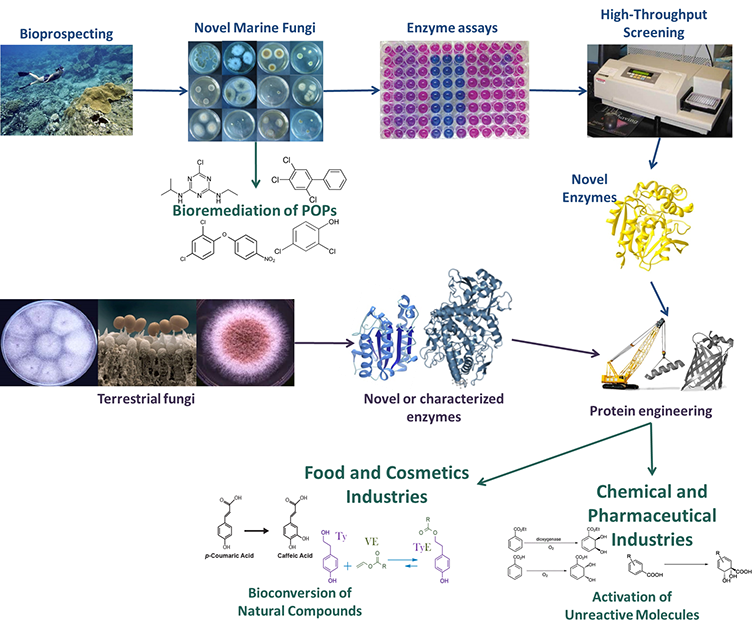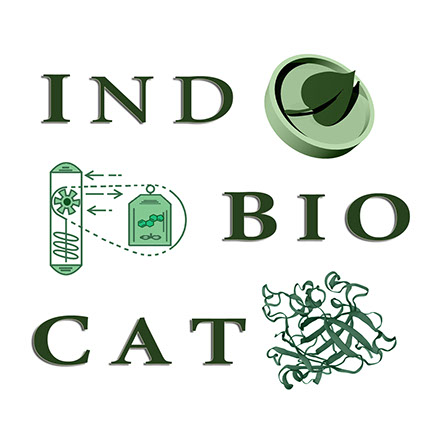
Exploitation of terrestrial and marine-derived fungal biocatalysts for the biotransformation of naturally-occurring organic molecules
Biocatalysis can be defined as the transformation of organic compounds catalyzed in living cells or by components of living cells. The advantages of biocatalysis against chemical synthesis are well-known. Chemo-, regio-, diastereo- and enantio-selectivity of biocatalysts are among their properties that render them superior against chemical catalysts. The constantly expanding field of biocatalysis is in search of novel biocatalysts to meet its new needs. Terrestrial fungi and their marine-derived counterparts possess a rich enzymatic arsenal with differentiated properties, due to the diverging habitats from which they originate. Our purpose is the identification, isolation and characterization of biotechnologically interesting enzymatic activities towards two directions; one degradative and one synthetic. On the one hand biocatalysts (whole cells or enzymes) can be used for the deterioration of harmful chemical compounds (such as POPs) found in nature, aiming to detoxify or eliminate them. On the other hand pure enzymes (in single or cascade reactions) can be used for the synthesis of chemicals or the biotransformation of natural compounds enhancing their properties.

